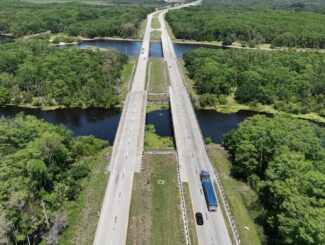May 15, 2023
By Ryan Spencer, Director of Environmental Investigation and Remediation, WSB
Most cities have dozens of brownfield sites that they would like to see redeveloped. Finding new uses for these sites can spur growth and investment in underserved neighborhoods, increase community tax base, boost local economies, and more. However, many cities face significant challenges when it comes to brownfields redevelopment, from identifying prime redevelopment opportunities to understanding how to proactively market sites to potential developers.
As more cities integrate smart city tools and technologies into their everyday operations, here are some ways communities can approach brownfield redevelopment.
Identifying Opportunities for Redevelopment and Making Data-Driven Decisions
Identifying brownfields sites is the first and most important step. Brownfields are former commercial or industrial sites that are abandoned, underutilized, or no longer in use. Many times, these sites have perceived or documented environmental contamination that is preventing them from being redeveloped. Brownfield sites are not exclusive to sites with current and/or historical gasoline station or dry cleaner use. Brownfield sites may have been dumping areas, airfields, ports, railway land, etc.; basically, a site associated with petroleum or hazards substance storage and use.
Using data and a smart city approach to brownfield revitalization can encourage cities to take a proactive approach and make educated decisions on when and where to invest their resources. Tools like GIS, census data, county and local government data, and so forth can help leaders filter and narrow down where investments are needed and will have the greatest impact.
What’s more, many cities already have all of these tools and data at their fingertips. It’s about rethinking how you use this information to overcome hurdles and jumpstart projects.
Reaching More Residents and Elevating Equity
Brownfield sites are scattered throughout communities, but many communities find them to be most prevalent in low-income, BIPOC, and traditionally underserved neighborhoods. Spurring opportunity and investment in these communities is critical to improve equity and inclusion of all residents, and can also help meet community diversity, equity, and inclusion goals.
Using data to better understand the resident makeup of these communities, where there are shortages of critical services and resources, and meaningful opportunities for economic redevelopment is important as leaders look to build the cities of the future.
Having an in-depth understanding of how brownfield redevelopment will revitalize underserved communities can also help secure critical grant funding for investigation and cleanup activities.
The Benefits of Proactive Brownfield Redevelopment
When communities are proactive about brownfield redevelopment, it can help mitigate project risk, create well-rounded narratives to secure critical grant funding, better serve key improvement zones across communities, and ensure that leaders have the data and tools to visualize and fully understand what opportunities are out there. Using data to drive these decisions can also help sell and secure partnerships with developers for redevelopment.
In short, cities have more data than ever at their disposal. Thinking about how brownfield redevelopment and smart city tools go together will drive communities forward.
How WSB Can Help
WSB has a team of experts that can help your community identify and redevelop brownfield sites. Whether it’s finding the best properties to redevelop, securing critical grant funding, doing investigation of sites and developing contaminant removal plans, or helping you better use smart tools to guide processes, our team can help.
Ryan Spencer is our director of Environmental Investigation and Remediation and has worked in the environmental consulting industry servicing both public and private sector clients. He is proficient in the planning, management, and completion of environmental due diligence, remediation, and brownfield grant writing.
[email protected] | 612.723.3644


